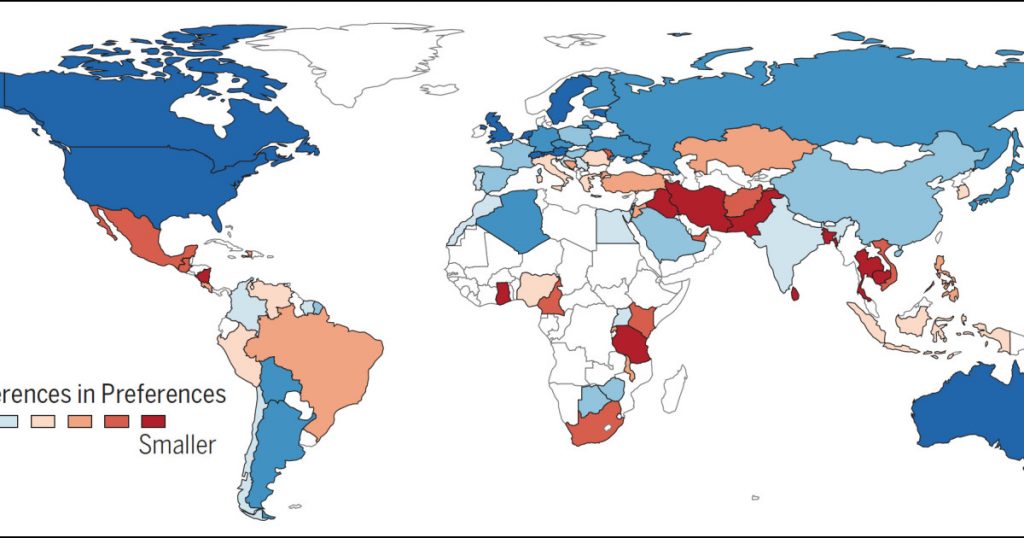Study Suggests Richer Countries Are More Gender Divergent
Looking for news you can trust?Subscribe to our free newsletters.
How different are men and women? Not physically, that is, but in terms of personality characteristics. What accounts for those differences? Nature? Nurture? Both?
Spoiler alert: the answer is “both.” But that’s boring. We want details. If there are variations, what specific kinds of things affect them? Armin Falk and Johannes Hermle decided to take a look at gender differences by country and produced this map:
That’s kind of interesting, isn’t it? In rich countries, where men and women have much more freedom to act as they please instead of obeying culturally-assigned gender roles, gender preferences are larger than they are in poorer countries.
There are several possible explanations for this, but first let’s dig a little deeper into the details:
In every case, people who live in richer countries have stronger gender preferences. Looking at the top row, women have greater altruism, more trust, and higher levels of positive reciprocity (i.e., returning a favor with another favor). Looking at the bottom row, men have greater levels of negative reciprocity (i.e., returning an eye for an eye), more tolerance for risk, and greater patience.
This is basically it. This is a study showing associations, but that’s all:
Our findings do not rule out an influence of gender-specific roles that drive gender differences in preferences. They also do not preclude a role for biological or evolutionary determinants of gender differences. Our results highlight, however, that theories not attributing a significant role to the social environment are incomplete….Greater availability of material resources removes the human need of subsistence, and hence provides the scope for attending to gender-specific preferences. A more egalitarian distribution of material and social resources enables women and men to independently express gender-specific preferences.
In other words, being richer provides more opportunity to act the way you want to, and it turns out that this means men and women are more likely to take on gender-specific roles. However, this study merely notes these differences, it doesn’t try to explain them. This means that you should feel free to offer up any wild-ass guesses you want in comments.





